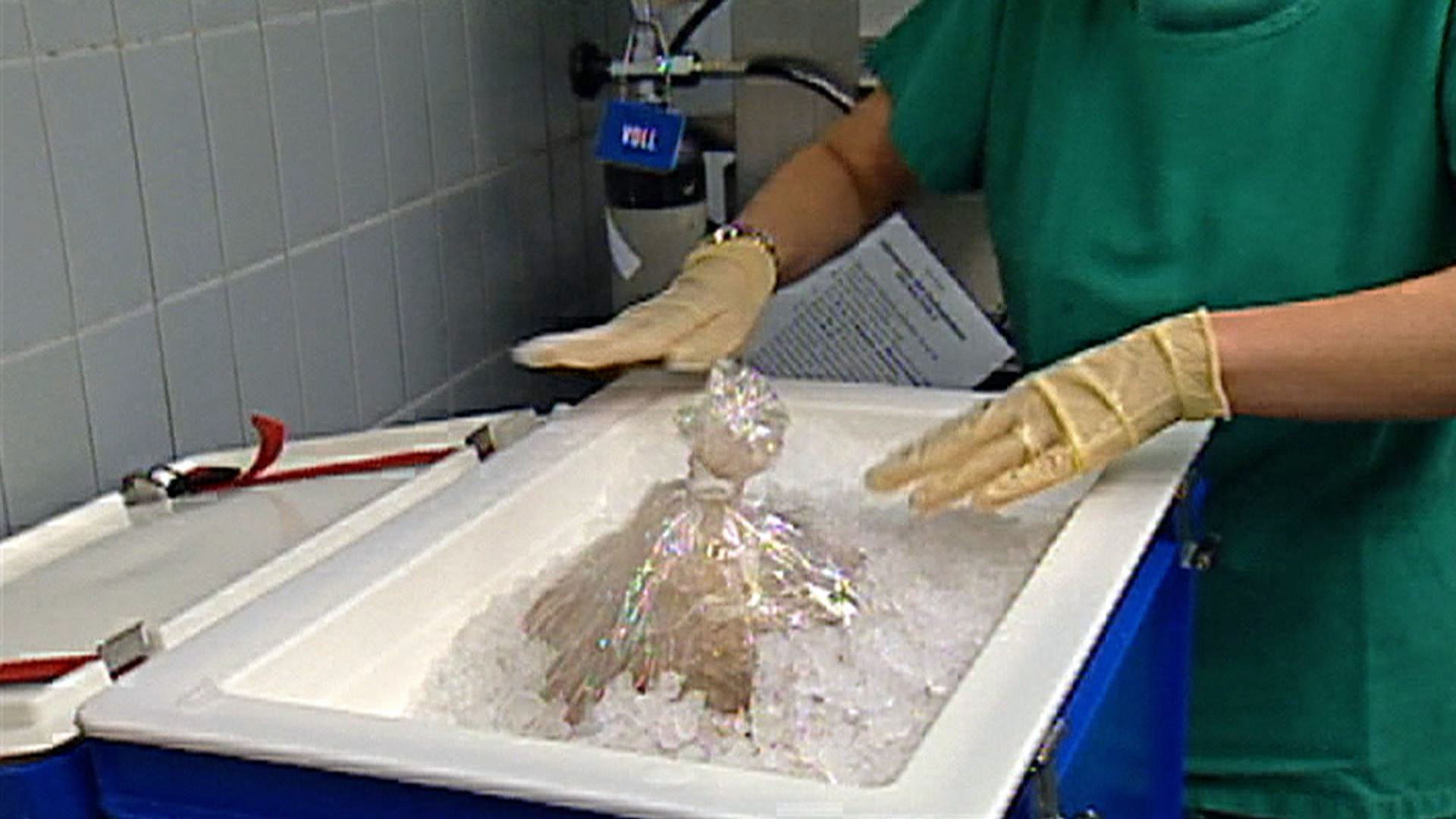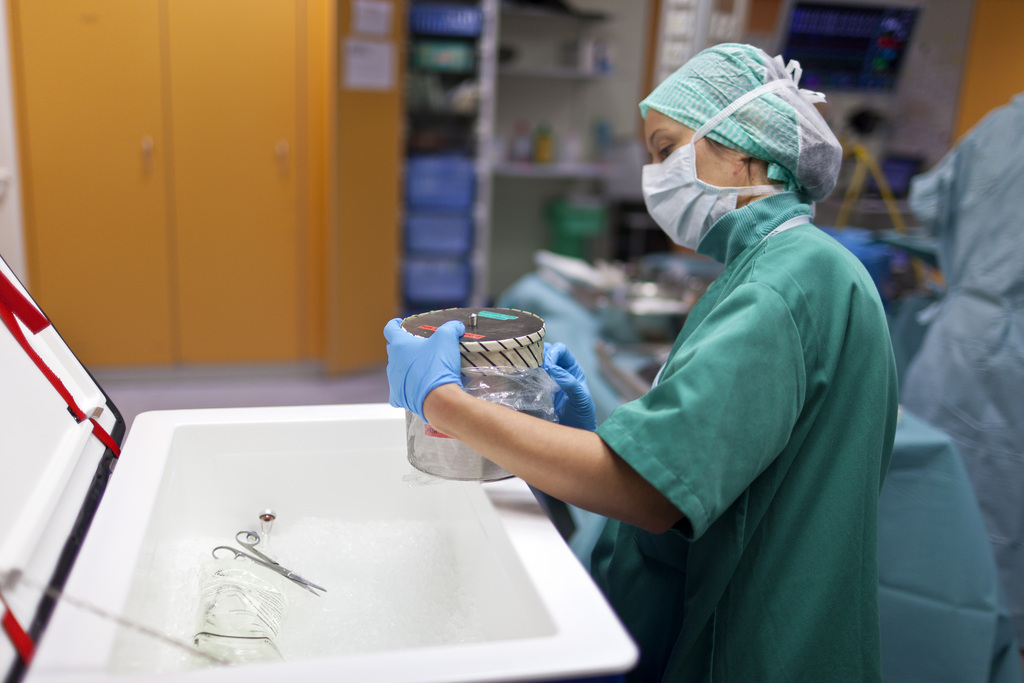Government rejects presumed consent

The Swiss cabinet has come out against automatic organ donation – when anyone who has not refused is considered a donor. It hopes an action plan will increase the still insufficient number of donors from the current 100 annually to 160.
This would position Switzerland alongside Spain, the United States, Austria and Australia, which have managed to increase organ donation as a result of combined and targeted measures, said Interior Minister Alain Berset on Friday.
The government based its rejection of automatic donation – when consent is presumed unless an objection is made by a patient or family members – on the recommendation of the national ethics commission, which believes it could threaten personal rights.
The cabinet also said it was unable to establish a clear correlation between the opt-out method and the number of transplanted organs.
Currently around 1,100 people are waiting for an organ in Switzerland, up 70 per cent since 2005, according to Swisstransplant, the organisation charged with organ allocation. The problem is that only 400 to 500 organs are transplanted every year.
Last year, 52 people died because no organ was available in time, Berset said.

More
Transplant rates vary from region to region
Action plan
In order to increase the number of donors from 100 to 160, the government will this year discuss and define the central issues with the cantons and parties involved, with a view to implementing an action plan by 2017.
This series of coordinated measures would focus on the intervention of highly trained coordinators at a local, regional and national level. Centralised data gathered from the population would also play a central role.
Switzerland’s donation rate –12.8 per million inhabitants – is one of the lowest in Europe, a third of the rate in Spain (at 35.3 per million the highest in Europe) and half of the French rate (24.8 per million). A study by the National Committee for Organ Donation estimated that a rate of 36.5 per million was possible.
One donor can potentially donate seven solid organs (heart, lungs, liver, pancreas, small intestine and two kidneys), as well as cornea, skin, blood, and various other tissues and cells.
Worldwide, around 500,000 kidneys, 20,000 livers, and 3,500 hearts were transplanted in 2012. Five Swiss university hospitals (in Basel, Bern, Geneva, Lausanne and Zurich) and one cantonal hospital (in St Gallen) perform transplants.
In 2011 there were 1,716 patients on the waiting list at some point in the year, with 504 of them receiving organs. The number of people waiting for an organ increased 71 per cent between 2005 (683) and 2012 (1165).
One donor can potentially donate seven solid organs (heart, lungs, liver, pancreas, small intestine and two kidneys), as well as cornea, skin, blood, and various other tissues and cells. Kidneys are in greatest demand, with 813 people on the waiting list at the beginning of 2012 and an average wait of 514 days in 2011.
There is huge variability in how long a transplanted organ lasts, with 60-70 per cent of transplanted hearts, lungs and livers surviving 10 years. Recipients can potentially receive another organ after the first one fails. This happens most frequently with kidneys, which survive an average of 15 years.

In compliance with the JTI standards
More: SWI swissinfo.ch certified by the Journalism Trust Initiative











You can find an overview of ongoing debates with our journalists here . Please join us!
If you want to start a conversation about a topic raised in this article or want to report factual errors, email us at english@swissinfo.ch.